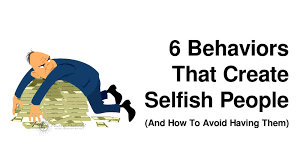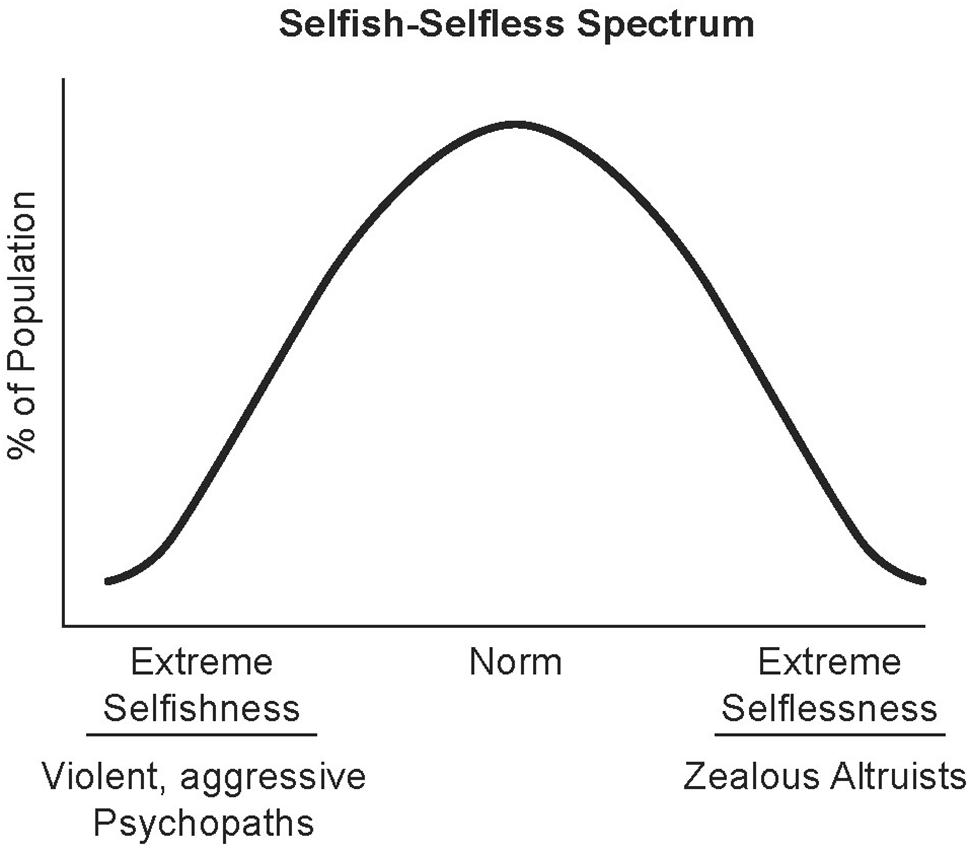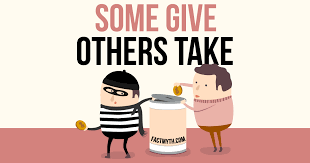Selfishness (selfish psychology) is a big topic in psychology. It’s been studied for years and there are still many questions to be answered about it. In this article, we’re going to talk about what “selfish” means in the context of psychology, how people behave when they have a high level of selfishness or selflessness, and some tips on how you can cultivate your selfishness or selflessness if you feel like it’s lacking.
Contents
- 1 What Is Selfish Psychology?
- 2 Types of Selfishness
- 3 Personality Types
- 4 Behaviors That Create Selfish People
- 5 Factors That Affect Selfishness In Society
- 6 Selfish Psychology In Professions And Circumstances
- 7 Benefits Of Selfish Psychology
- 8 When and how to use selfishness?
- 9 Tips to cultivate selflessness/selfishness
- 10 How To Deal With Selfish People
- 11 Psychotherapists on selfish psychology
- 12 Conclusion
What Is Selfish Psychology?

Selfishness, in psychology, is the tendency to think about oneself more than others. It’s a trait that has been around for as long as humans have and it manifests in different ways depending on the person.
People high in selfishness are more likely to put themselves before others. They tend to take care of their own needs, often at the expense of other people’s well-being. For example, they may be unwilling to give up a parking spot because it would inconvenience them if someone else took advantage of that opportunity instead.
Someone low on selfishness, on the other hand, might be willing to inconvenience themselves if it means that someone else can have a better experience.
Who Gave The Term Selfish Psychology?
The term “selfish psychology” was first coined by Dr. Jean Twenge, a professor of psychology at San Diego State University. She and her team did a study on how narcissism (a personality trait characterized by high levels of selfishness) had increased over the years in young people.
Types of Selfishness
Selfishness comes in different flavors: good selfishness, neutral selfishness, and bad selfishness.
Good selfishness
Good selfishness is when someone does something nice for themselves without worrying about how it affects others. For example, buying yourself some new clothes on a day when everyone else is scrimping because they are saving money for something.
Neutral selfishness
Neutral selfishness is not good or bad but means that the individual puts their interests before those of other people as much as possible. Additionally, they do not notice if their behavior might be harmful or helpful to others.
Bad selfishness
Bad selfishness is when someone does something that harms other people, either intentionally or unintentionally. For example, taking advantage of someone else’s kindness or using them for their gain.
Personality Types
High On Selfishness
Highly selfish people can be divided into subgroups.
(Type A personalities)
Highly self-oriented people (Type A personalities) tend to be more selfish than average. But they’re usually very open about their feelings. And don’t try to hide them from other people. They also achieve a lot of success at work because they focus on themselves instead of getting bogged down with other people’s problems.
(Type B personalities)
Highly task-oriented (Type B personalities) are less selfish than average. But they don’t get distracted by their feelings and emotions when focusing on the tasks at hand. They may think about others during work hours. But it doesn’t stop them from getting things done efficiently.
Low On Selfishness
People who are low on selfishness can be divided into subgroups as well.
(Type C personalities)
Deferential people (Type C personalities) put the needs of others before their own. They often go out of their way to make sure that other people are happy. They’re usually very likable because they take care of everyone around them. But they may not be as happy as they could be because of the lack of balance in their lives.
(Type D personalities)
Highly principled people (Type D personalities) are very selfless and go out of their way to help other people. But they do so according to a strict moral code that guides them about how far they’re allowed to go for others before it’s no longer okay. They have a hard time letting go of their own needs. Because they’re so focused on others, but if you get to know them well enough, there may be ways that you can help.
Behaviors That Create Selfish People

Certain behaviors can create selfish people.
Individualism
When society emphasizes individualism, it often leads to more selfishness as people become more concerned with themselves and their own needs. This is because the focus is no longer on the group but on the individual. It can lead to a lot of discord within the group.
Hedonism
When a society values hedonism, which is all about maximizing pleasure and minimizing pain, it can lead to more selfish people. Because they are only concerned with their feelings of happiness or unhappiness without caring what other people may think or feel at that moment.
Materialism
When a society becomes materialistic, it can lead to more selfish people as they become obsessed with acquiring more and more possessions. This is because the focus shifts from what’s important (such as relationships or personal growth) to what’s not important (material items).
Self-interest
When a society values self-interest, it often leads to more selfish people. Because they put their interests ahead of the group. They don’t care what other people may think or feel at that moment. They only want things done if doing so will benefit them directly.
Short-term thinking
When society only thinks about the present moment, it can lead to more selfish people. Because they’re focused on themselves and their own needs. This is in contrast to societies that think long-term and value future generations over short-term gain.
Unethical Behavior
When unethical behaviors are encouraged, it can lead to more selfish people. Because they only care about their feelings of happiness or unhappiness without caring what other people may think or feel at that moment. They will do whatever is necessary to get ahead, even if this includes cheating others out of money or opportunities.
Factors That Affect Selfishness In Society

There are a few factors that can affect the level of selfishness in society.
Economic Disparity
When there is a large economic disparity between different groups within a society, it often leads to more selfishness. As people become more focused on themselves and their own needs instead of working together for the common good. This is because the focus is no longer on the group but on individual groups within that society, which can lead to a lot of discord.
Competition
When there is a strong culture of competition in place, it often leads to more selfishness as people become obsessed with beating other people instead of working together for the common good. This obsession with competition can often lead to a lot of unethical behavior as people try to do whatever it takes to come out on top.
Political Instability
When a society is politically unstable, it often leads to more selfishness as people become more focused on themselves and their own needs instead of working together for the common good. This is because the focus is no longer on the group but on individual groups within that society, which can lead to a lot of discord.
Religious Fundamentalism
When there is an emphasis placed on religious fundamentalism, it often leads to more selfishness as people become obsessed with living according to their moral code instead of respecting other people’s beliefs and opinions. This can often lead to a lot of conflict within society.
Selfish Psychology In Professions And Circumstances
Professions that demands selfishness
There are a few professions that call for selfishness.
CEOs
As CEOs, it’s often necessary to be focused on themselves and their own needs to make sure that their company is doing well. This means that they need to be able to think about their own goals and how they can achieve them, without letting anybody else get in the way.
Politicians
Similarly, politicians also need to be selfish to make sure that they’re able to reach their goals. This often means putting themselves before anyone else, even if it means making a few enemies along the way.
Professions that calls for selflessness

On the other hand, there are also a few professions that demand selflessness from people.
Doctors
When it comes to doctors, they need to be able to think about others before themselves to make sure that they’re treating their patients effectively and responsibly. This means putting aside their own needs and feelings to do what’s best for the person in front of them.
Nurses
Similarly, nurses also need to be selfless to care for their patients. This means being able to provide emotional support as well as practical help, oftentimes under difficult circumstances.
Circumstances where people are more likely to behave in a highly selfish way
Several circumstances can cause selfish people to come out.
Being unemployed
Unemployment has been linked with an increased risk for depression, which may bring out more selfish behaviors in someone who is already predisposed toward being self-focused and goal-oriented. This type of person may feel like they have nothing to lose and no one to help them, so they may lash out at others or become very demanding.
Being in a high-stress situation
When someone is under a lot of stress, their natural response may be to focus on themselves and their own needs to survive. This can lead to them becoming more selfish and demanding, as well as less sympathetic to the needs of others.
Being in a low-stress situation
On the other hand, when someone is in a low-stress situation, they may become more focused on others and their needs. This can lead to them being taken advantage of by people who are high on selfishness, so they may have to learn how to balance their own needs with the needs of others.
Benefits Of Selfish Psychology
Selflessness is known as being altruistic. While it seems like everyone should be selfless, some benefits can come from being more selfish than average.
Increases focus on goals
Highly goal-oriented people who are selfish can achieve a lot because they’re not as easily distracted by their feelings and emotions. They’re more focused on the task at hand, which often leads to them achieving their goals faster than those who are more selfless.
Can be motivating
In some cases, being selfish can be very motivating for people. This type of person knows exactly what they want and is not afraid to go after it, which can inspire others around them.
Increases creativity
Some studies have shown that selfless people tend to be more creative than those who focus on themselves because their minds aren’t cluttered with thoughts about themselves. They’re able to think more freely and come up with new ideas.
Can make people more successful
Finally, being selfish can often lead to greater success in life because these people are not afraid to take risks and they’re very good at networking. They know what they want and they’re not afraid to ask for help to get it.
When and how to use selfishness?
 Knowing when and how to use selfishness is an important part of making sure that we don’t become like the “Me Generation” who only care about themselves and not anyone else. However, it’s also important to know when selflessness can positively serve us as well.
Knowing when and how to use selfishness is an important part of making sure that we don’t become like the “Me Generation” who only care about themselves and not anyone else. However, it’s also important to know when selflessness can positively serve us as well.
Circumstances When Selfishness Serve Us
There are a few circumstances when selfishness can serve us.
Survival
In cases of survival, such as being stranded on a deserted island, it’s often necessary to be selfish to survive. This means that you have to focus on yourself and your own needs to make it through this difficult time.
Expedience
In cases of expedience, such as when you’re trying to get somewhere on time and someone is in your way, it can be necessary to put yourself first. This means that you need to focus on getting where you want to go instead of helping this person. While there might not seem like there’s enough room for everyone, it’s important to remember that you’re not the only person on this earth.
Self-preservation
In cases of self-preservation, such as when your life is in danger, it can be necessary to be selfish to protect yourself. This means that you need to focus on yourself and your well-being instead of worrying about what other people might think or feel at that moment. It’s important to remember that you are the only person who can truly take care of yourself and your own needs, so it’s necessary to put them first at times like these.
Situations when we should moderate our selfishness
There are also a few situations when we should moderate our selfishness.
In relationships
When we’re in a relationship, it’s important to remember that we need to think about the other person as well and not just ourselves. This means that we should put their feelings and needs ahead of our own, even if it’s not always easy.
In social situations
When we’re in social situations, it’s important to remember that we need to think about the other person as well and not just ourselves. This means that we should put their feelings and needs ahead of our own, even if it’s not always easy.
At work
When we’re at work, it’s important to remember that our job is all about the people who are depending on us. This means that you need to put their needs ahead of your own so that you can perform better in this role. While there will always be some things that only concern yourself, putting others first when possible is necessary for a successful career.
Instances when selfishness can go against us
When we’re in some situations, it can be difficult to remain selfless. However, there are some instances when this is necessary for our well-being and that of others around us.
Theft
For example, if somebody steals something from you or breaks into your home and threatens your life, then selfishness might not be the best option. In cases like these, it’s important to remember that you need to protect yourself and your belongings no matter what.
Bullying
Another example is when somebody is bullying another person. In this situation, it’s often necessary for the victim to stand up for themselves and fight back against their bully. This might seem like a very selfish thing to do, but it’s the best way for this person to feel safe and protected.
In emergencies
Finally, there are emergencies where people must put themselves first. This might include things like needing to give yourself CPR or performing a blood transfusion on yourself. While it’s not always easy to do, there are times when it’s necessary to think about oneself to save somebody else’s life.
Tips to cultivate selflessness/selfishness

Tips to cultivate selflessness
There are also a few tips that can help us become more selfless and less selfish in our everyday lives:
Be grateful
One tip is to make sure that we don’t take anything for granted, especially the people around us and all of the opportunities available to us. By taking the time to appreciate everything which you have and all of your opportunities, it becomes easier to put others first.
Be kind
Another tip is to make sure that we’re always being nice and considerate towards other people around us – even if we don’t know them personally. This means taking some time each day to perform a random act of kindness, something which can make a big difference in somebody else’s life.
Volunteer
Another great way to cultivate selflessness is by volunteering your time and energy to help others who are less fortunate than you. This could be anything from helping out at a local soup kitchen to spending time with elderly people or children who are unable to look after themselves.
Tips to cultivate selfishness
While there might be some situations where it’s necessary for us to be selfless, other times this can have negative effects on our lives and those around us. As such, here are a few tips that could help you become more selfish:
Be protective
One tip is to make sure that you keep yourself safe at all costs. While this might not always be possible, it’s important to do whatever is necessary if somebody tries to harm you or break into your home and threaten your life. By putting yourself before others in these situations, it becomes easier for us to feel protected.
Don’t give too much of yourself
Another tip is to make sure that you don’t give up the things which are important in your life. This means spending some time each day doing something fun or relaxing, as well as making sure that you only share your good fortune with others when necessary. By taking care of ourselves first and foremost, it becomes easier for us to focus on our own needs.
Set boundaries
Another important tip is to set healthy boundaries with the people around us. This means learning how to say no when we’re feeling overwhelmed or stressed, and not letting others take advantage of our time or resources. By setting boundaries, it becomes easier for us to protect ourselves from exploitation and maintain our happiness.
How To Deal With Selfish People

There are a few ways that you can deal with selfish people.
Compromise
When dealing with someone selfishly, the best way to get them to compromise is to meet them halfway by agreeing to their demands. This way, they will feel like you’re meeting them halfway and this is more likely to lead to a happy compromise than if you refuse their demands outright.
Compliance
When dealing with someone selfishly, the best thing that you can do is comply with what they want instead of fighting against it. If the person wants something from you, it’s often a better idea to give in and accommodate them rather than refusing their demands. This way, they will feel like you’re meeting them halfway and this is more likely to lead to a happy compromise.
Expectations
When dealing with someone selfish, the best thing that you can do is set boundaries and set expectations for what you’re expecting from them in return. If the person knows that there are certain things they have to do to get something from you, it’s more likely that both of your needs will be met instead of just their own.
Rejection
When dealing with someone selfishly, if all else fails, the best thing that you can do is to reject them. This will let them know that their behavior is not acceptable and they will likely change their ways if they want to continue interacting with you.
NOTE: Selfishness is a complex psychological concept that can have both positive and negative effects on people and societies. It is important to keep this in mind when dealing with people who are selfish and know how to assert yourself accordingly.
Psychotherapists on selfish psychology
Lastly, many psychotherapists have written about the topic of selfish psychology and how it can be both helpful and harmful in different ways. For example, some therapists may argue that a little bit of selfishness is necessary for people to maintain their sense of self and identity. While others may claim that selfishness can lead to isolation, loneliness, and depression.
In addition, psychotherapists often help people learn how to balance out their own needs and the needs of other people around them. This can be very challenging for some, but it’s also an important part of self-care that many therapists will encourage their clients to do.
Conclusion
Selfishness is a complicated area because no one wants to appear to be a bad person who only cares about themselves. However, if you don’t have time to take care of yourself or put your own needs first from time to time. Then it may not be possible for you to help other people to the best of your abilities. Because you’ll become overwhelmed and burned out more quickly than someone else would.
From a psychological standpoint, it’s important to understand how and when to use selfishness. So that it doesn’t go against us. However, we should also make sure to cultivate selflessness. Because it can help us to be more happy and healthy in the long run.
If you want to learn more about selfish psychology, many different resources can help you to understand selfish psychology in detail. Some of these include books like “The Selfish Society” by Dr. Wulf-Uwe Meyer. There are also many different podcasts and videos available on the topic. So be sure to do some research to find the ones that work best for you.
If you are looking for affordable Online Counseling MantraCare can help: Book a trial therapy session


